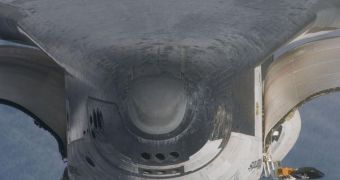Increasingly often, analysts are arguing that the retirement of the three orbiters and the shutdown of the American Space Shuttle Program (SSP) will knock the United States off its position as a dominant power in all matter related to space exploration.
The age of the shuttles will come an end tomorrow, on July 21, when Atlantis is scheduled to land at the Kennedy Space Center (KSC), in Florida, for the last time ever. The orbiter will then join its sisters in being decommissioned, and readied for permanent display in a museum.
Starting tomorrow, the US will be left without the ability to put people in space for the first time in half a century. A leading astronomer at the Durham University, in the United Kingdom, says that this will mark the end of American dominance in space.
Emerging countries such as China and India are the most likely candidates to replace America as the leading actor in space. In all fairness, the US has become reluctant to take risks and to make investments in things that do not return an immediate profit.
This means that its place as a dominant power should be taken by a country that is willing to go the extra mile to ensure its continuous presence in space. NASA will not be able to put people in space until at least 3 to 5 years from now.
Martin Ward, a professor and head of physics at Durham, and a former consultant for the European Space Agency (ESA), says that the retirement of the shuttles will place the entire burden of handling the International Space Station (ISS) on the Russian Federal Space Agency (RosCosmos).
At this time, the Russians are the only ones who have space-worthy vehicles capable of docking to the ISS. The Chinese have manned spacecraft as well, but their docking ports are not compatible with the ones currently outfitted on the ISS.
“In terms of human space flight the United States has no coherent plan for the future, just a vague long term hope that commercial interests might fill the current void,” Ward explains.
“They no longer have any means to launch humans into space – something that has always been a crucial part of the way scientists seek to understand the Universe,” the analyst comments.
“Given the costs involved, it may well be that in the coming decades the baton of human space flight will be passed on to China and India. Crucially, these countries may also possess the essential motivation to ‘boldly go forth’,” he adds.
“Astronomers are now hoping that financial issues in the United States will not curtail our efforts to understand the universe and our place in it, for example uncertainty regarding future funding for the replacement of the Hubble Space Telescope,” Ward concludes.
Hubble's replacement, the James Webb Space Telescope, has been proposed for cancellation by the Appropriations Committee of the US House. Nothing is final yet, but the scientific community is keeping a close eye on how the situation develops.

 14 DAY TRIAL //
14 DAY TRIAL //